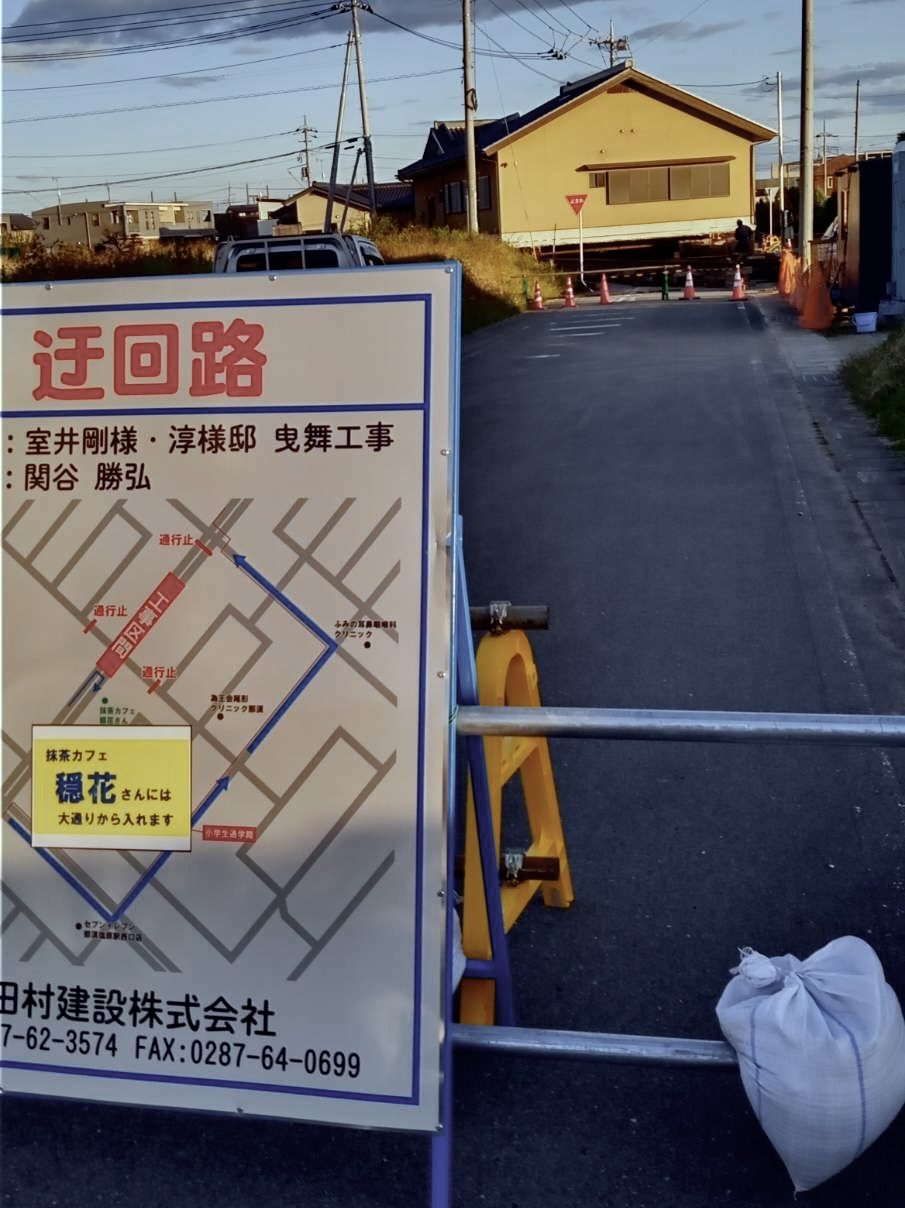Some of my fondest childhood memories took place in Japan. Every summer, we would visit my mother’s family in Nasushiobara, a rural exurb north of Tokyo. I would bike past lush green rice fields with my Ojiichan and brother. We would catch dragonflies and walk to the local tempura shop. Ojiichan smiled and waved at the familiar faces we passed by. The Nasushiobara I once knew is held only in these memories.

My Grandparents’ house hoisted on rail tracks, being pulled onto a new grid, Nasushiobara, Japan, 2011

Source: Takashi Tamaki
When Ojiichan died, the Nasushiobara I knew and loved died with him. It wasn’t just his absence that changed the city, but the local government was also changed. It started pushing Gappei (mergers), a federally mandated program that amalgamated municipalities of decreasing population to cut national expenditures and strengthen local administration. Gappei in Nasushiobara took the form of “Land Readjustment” in 2005, where irregularly shaped lots were sliced and boxed into strictly regimented grids to improve public infrastructure, like roads and sewage systems. For the sake of fitting into a more “regular” grid, my grandparents’ house was lifted by a crane, dropped onto a rail track, and pulled to a location just five minutes away. Ctrl X, Ctrl V – home was quite literally cut and pasted into the Gappei grid, flattening over the existing grid as if thousands of memories and personal attachments didn’t already exist between those lines.
Rural Japan’s municipal merger program dissolved Nasushiobara into surrounding neighborhoods in the name of “efficiency” and “growth.” I became witness to its rapid homogenization and so-called development; each year, I lost yet another element of the city that I loved. In 2007 I lost the vegetable gardens to perfectly paved roads; in 2008 I lost the rice fields to rows of identical apartments; in 2009 I lost the small local shops to mega-markets. We stopped walking on pebble pathways to street merchants to buy potato kurokke; we started driving on wide roads to chain supermarkets to buy the same things that I could buy in California. Nasushiobara’s identity, culture, and history was dissolved in a cookie cutter standardization that made for repetitive and auto-centric landscapes indistinguishable from everything nearby.
The Japanese government sought to cut costs in a top-down, hasty displacement — in doing so, it cut corners and ultimately created spaces that are clones of schemes found everywhere. The loss of place in Nasushiobara helped me understand that location-based markers of human experience are precious and vastly important for fruitful connections to each other and our environment. Neighborhoods should be patterned with overlapping and interlocking community ties developed over time. It is easy to cut and paste seemingly simple solutions — yet these solutions are often simplistic reductions that create messier, more complicated problems. Development should not mean dispossession; efficiency should not mean erasure. We cannot simply press Ctrl Z to undo this process.


